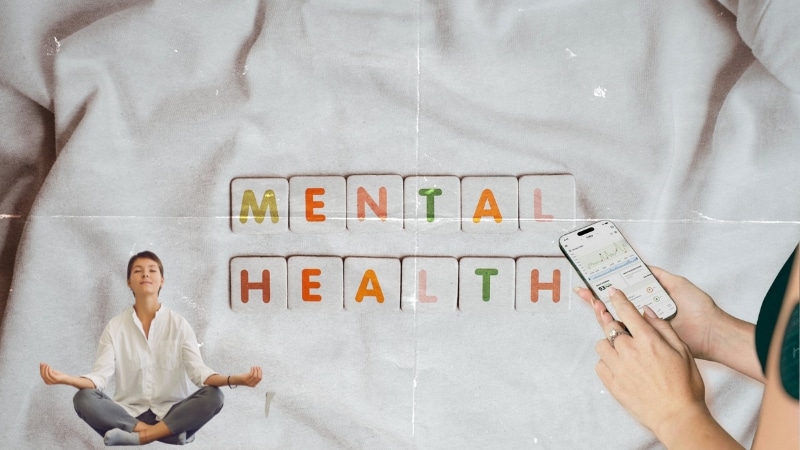Health tracking apps for mental wellbeing have rapidly emerged as essential tools in the modern digital era, offering users the ability to monitor and enhance their emotional and psychological health from the comfort of their devices. In an age where stress, anxiety, and burnout are increasingly common, these apps provide personalized strategies, insights, and reminders that promote sustainable mental wellness. From tracking mood patterns to offering guided meditation exercises, the range of functionalities available today is not only impressive but also transformative.
Moreover, health tracking apps for mental wellbeing bridge the gap between traditional mental health care and everyday self-management. They empower individuals to take charge of their mental health proactively, complementing therapy or professional support. Through intuitive interfaces, real-time notifications, and data-driven insights, users gain an unprecedented understanding of their cognitive patterns, emotional triggers, and overall mental fitness. These apps are no longer mere tools—they are companions in the journey toward emotional resilience.
Finally, as technology evolves, the role of health tracking apps for mental wellbeing expands beyond simple monitoring. Innovative features, including AI-driven insights, community support, and integration with wearable devices, allow for holistic mental health management. Whether you are seeking to reduce stress, enhance productivity, or improve sleep quality, these applications provide practical, evidence-based solutions tailored to individual needs. This article delves into the most effective ways to leverage these apps, exploring their benefits, challenges, and strategies for long-term mental wellness.
Understanding the Benefits of Health Tracking Apps for Mental Wellbeing

Health tracking apps for mental wellbeing offer an array of benefits that extend far beyond basic mood tracking. One of the most significant advantages is the ability to identify patterns and triggers. By recording daily emotions, sleep cycles, and activity levels, users can discover correlations between lifestyle choices and mental states. This empowers individuals to make informed decisions, such as adjusting work schedules, integrating mindfulness practices, or modifying social interactions.
Another critical benefit is the promotion of emotional awareness. Many apps utilize prompts, journaling features, and reflective exercises that encourage self-exploration and introspection. These small, daily practices accumulate over time, fostering improved emotional regulation, stress management, and self-compassion. Importantly, these apps provide an accessible solution for those hesitant or unable to seek traditional therapy, democratizing mental health care in the digital age.
Furthermore, the integration with wearable technology enhances the effectiveness of health tracking apps. Devices like smartwatches or fitness trackers collect biometric data, such as heart rate variability and sleep patterns, offering a more comprehensive perspective on mental wellness. Combined with AI-powered analytics, these tools can deliver personalized recommendations, ensuring that each user receives actionable insights tailored to their unique mental health profile.
In addition to promoting mindfulness and stress management, health tracking platforms can also intersect with financial wellness. Many users find that balancing emotional stability goes hand in hand with reducing money-related anxiety, which is why exploring Free Budgeting Apps for UK Households can complement mental health routines. By keeping both mental wellbeing and financial health in check, individuals create a more holistic foundation for everyday balance.
Challenges and Considerations in Using Health Tracking Apps for Mental Wellbeing

While health tracking apps for mental wellbeing offer numerous advantages, users must navigate certain challenges to maximize their effectiveness. Data privacy and security remain primary concerns. Many apps collect sensitive information, from emotional states to personal habits, which can be vulnerable to breaches. Users should ensure that chosen apps comply with stringent security protocols and transparent privacy policies.
Another consideration is user engagement and consistency. The effectiveness of these apps depends heavily on regular use and honest self-reporting. Inconsistent logging or superficial engagement may lead to inaccurate insights, limiting the app’s utility. Setting realistic goals, scheduling daily check-ins, and integrating app use into a routine can mitigate these risks.
Lastly, overreliance on technology is a potential pitfall. While apps provide valuable insights, they should complement, not replace, professional mental health support. Users experiencing severe anxiety, depression, or other mental health conditions should seek guidance from licensed professionals while leveraging these apps as supplementary tools.
Maximizing the Impact: Strategies and Tools
To harness the full potential of health tracking apps for mental wellbeing, adopting structured strategies and exploring advanced functionalities is crucial. The following subsections break down practical approaches into three key areas:
1. Personalized Goal Setting
- Define clear objectives: Identify whether your priority is stress reduction, improved sleep, mood stabilization, or cognitive enhancement.
- Utilize app-specific goal trackers: Many apps allow you to set personalized targets, such as minutes spent meditating or daily journaling entries.
- Review progress regularly: Weekly analytics can highlight improvements and areas needing attention, reinforcing motivation.
2. Integrating Mindfulness and Cognitive Exercises
- Guided meditations and breathing exercises: Incorporate short, daily sessions that reduce cortisol levels and enhance focus.
- Cognitive-behavioral therapy (CBT) modules: Use apps offering CBT-inspired exercises to identify negative thought patterns and reframe thinking.
- Reflective journaling: Daily prompts encourage introspection, helping users process emotions constructively and strengthen self-awareness.
3. Leveraging Social and Community Support
- Peer support forums: Participate in app communities for shared experiences, tips, and encouragement.
- Professional check-ins: Some apps provide virtual sessions or AI-assisted mental health check-ins to reinforce self-monitoring.
- Gamification and challenges: Engaging features like streaks, badges, and challenges incentivize consistent use while promoting mental health goals.
Before concluding, it is worth noting that while health tracking apps for mental wellbeing provide incredible tools for self-care, many users benefit from combining these digital resources with reputable external references and established programs.
For instance, learning more about mental health concepts from organizations like the American Psychological Association or exploring research on emotional wellbeing through the National Institute of Mental Health can deepen your understanding and help interpret the app data effectively. Additionally, integrating widely-used apps such as Headspace, Calm, or Moodfit allows for a richer, more personalized experience, combining guided meditation, cognitive-behavioral exercises, and mood tracking into a comprehensive mental wellness routine.
By referencing these trusted platforms, users can ensure they are not only monitoring their mental health but also aligning with evidence-based practices.
Conclusion – Health Tracking Apps for Mental Wellbeing
In a fast-paced world where mental health challenges are increasingly prevalent, health tracking apps for mental wellbeing represent a powerful tool for self-care, emotional awareness, and proactive mental health management. By understanding their benefits, addressing potential challenges, and employing strategic approaches, users can maximize the positive impact of these digital companions.
Beyond mere technology, these apps foster resilience, mindfulness, and empowerment, transforming the way we perceive and nurture our mental wellbeing. As the intersection of technology and mental health continues to evolve, embracing these tools can lead to lasting, meaningful improvements in both mind and life.
